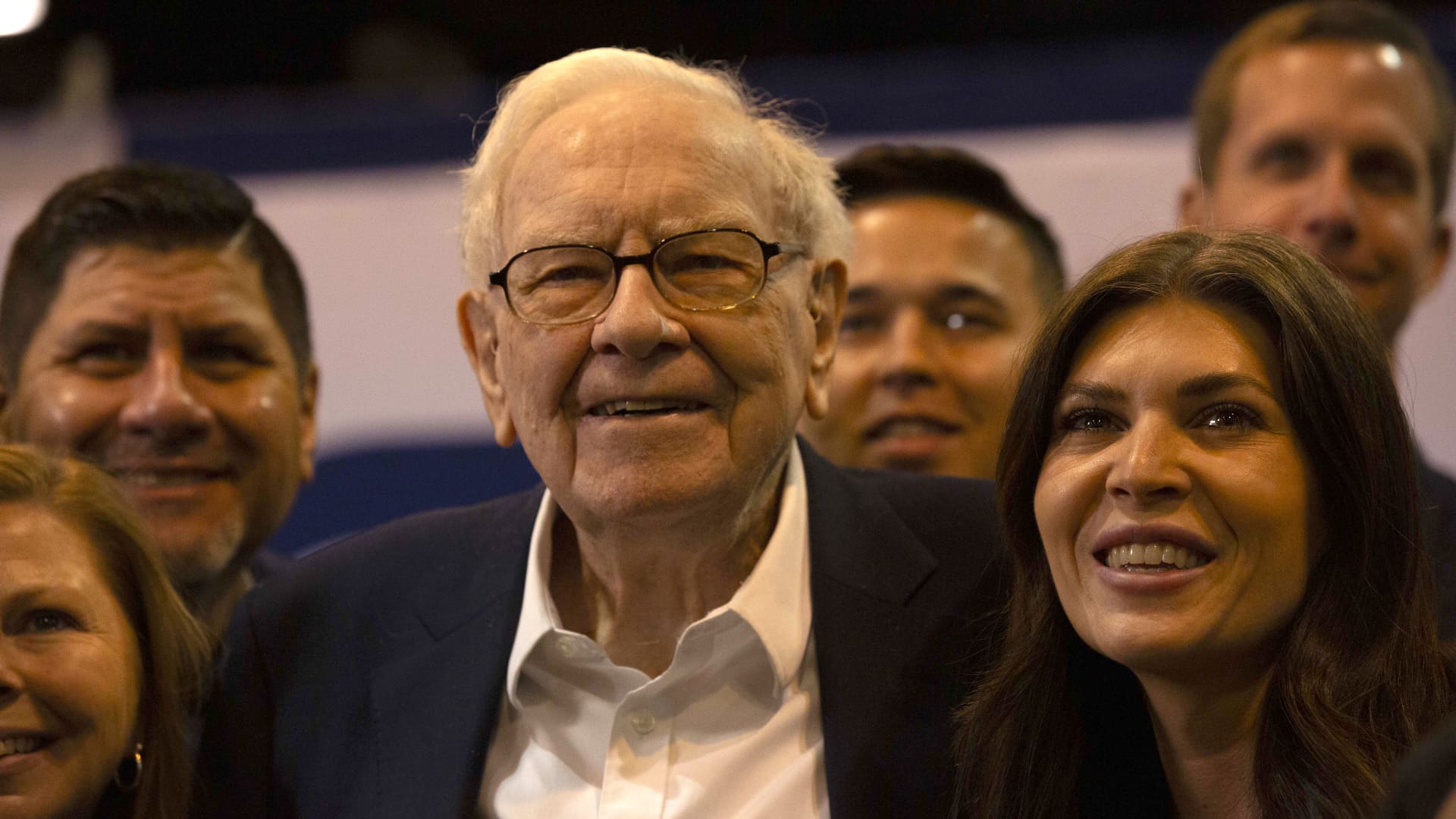Alphabet shares rise on stronger-than-expected revenue growth

Alphabet, the parent company of Google and YouTube, reported stronger-than-expected first-quarter growth on Thursday after the bell. Shares rose more than 5% in after-hours trading.
Here’s how the company did, compared with estimates from analysts polled by LSEG:
- Revenue: $90.23 billion vs. $89.12 billion, estimated
- Earnings per share: $2.81 vs. $2.01, estimated
Wall Street is also watching several other numbers in the report:
- YouTube advertising revenue: $8.93 billion versus $8.97 billion, according to StreetAccount
- Google Cloud revenue: $12.26 billion versus $12.27 billion, according to StreetAccount
- Traffic acquisition costs (TAC): $13.75 billion versus $13.66 billion, according to StreetAccount
Alphabet’s search and advertising units are still showing strong growth despite AI competition heating up, according to its first-quarter earnings report.
The company’s overall revenue grew 12% year-over-year, higher than the 10% Wall Street expected.
Google’s YouTube advertising revenue came in just short of analyst expectations at $8.93 billion. Overall advertising brought in $66.89 billion, up 8.5% from the year prior.
The company’s “Search and other” segment reported $50.7 billion — up 9.8% from $46.16 billion a year prior. Alphabet said AI Overviews, its AI tool placed at the top of Google’s search results page, now has 1.5 billion users per month, up from 1 billion in October.
Philipp Schindler, Google’s business chief, said that the company is “not immune to the macro environment,” adding that President Donald Trump’s decision to end the de minimis trade loophole next month will “cause a slight headwind to our Ads business in 2025, primarily from APAC-based retailers.”
The de minimis trade exemption allows shipments worth less than $800 to enter the U.S. duty-free, a key part of the businesses of Chinese e-commerce companies Temu and Shein, which have previously spent extensively in online ads. The exemption is slated to close on May 2.
“I would say we have a lot of experience in managing through uncertain times, and we focus on helping our customers by providing deep insights into changing consumer behavior that is relevant to their business,” Schindler said.
Finance, retail, health care and travel were among the top industries advertising with Google, helping revenue growth, Schindler said.
Alphabet’s net income increased 46% to $34.54 billion, or $2.81 a share, from $23.66 billion, or $1.89 a share, a year earlier. The company said that included $8 billion in unrealized gains on its non-marketable equity securities related to Alphabet’s investment in a private company.
The company reported revenue of $12.26 billion for its cloud computing business, which was slightly below analysts’ expectations of $12.27 billion, according to StreetAccount. But the cloud unit saw its revenue increase 28% year-over-year, and its margins came in at 17.8%, compared to 9.4% a year ago.
Alphabet made its largest acquisition ever in March when it agreed to buy Wiz for $32 billion in cash, almost $10 billion more than it offered for the startup in 2024, and said it expects the deal to close next year, subject to regulatory approvals. With the acquisition, Google will seek to bolster its cloud division’s security offerings.
“We think this will help spur more multi-cloud computing, something our customers want,” Alphabet CEO Sundar Pichai said about the acquisition on a call with analysts on Thursday.
The company said its “Other Bets” segment, which includes its self-driving car unit Waymo and life sciences unit Verily, brought in $450 million, down 9% from $495 million a year earlier. The unit lost $1.23 billion — up from $1.02 billion the year prior.
Alphabet said Waymo is providing more than 250,000 fully autonomous paid rides per week across the San Francisco, Los Angeles, Phoenix and Austin regions. That’s up from 200,000 in February, before the service opened in Austin and the broader San Francisco Bay Area.
“Waymo is continuing to progress in building on its impressive technological achievements to scale rapidly and develop a sustainable business model,” Alphabet CFO Anat Ashkenazi said on the Thursday call.
Ashkenazi also said the company still expects to invest approximately $75 billion in capital expenditures this year but stipulated “the investment level may fluctuate from quarter to quarter due to the impact of changes in the timing of deliveries and construction schedules.”
Alphabet also said that its board authorized it to repurchase an additional $70 billion in shares, just as it did a year ago.
WATCH: DOJ targets Google’s AI ambitions in high-stakes antitrust trial









